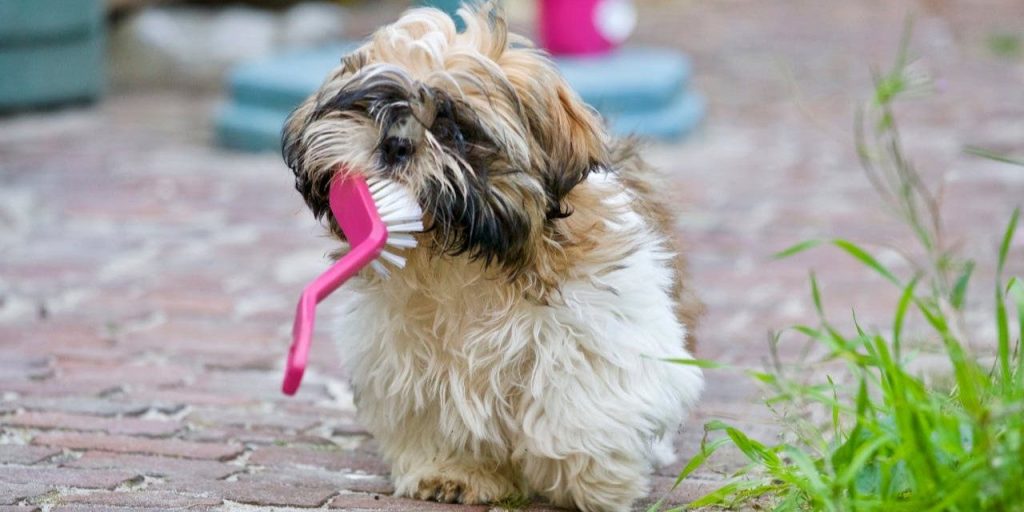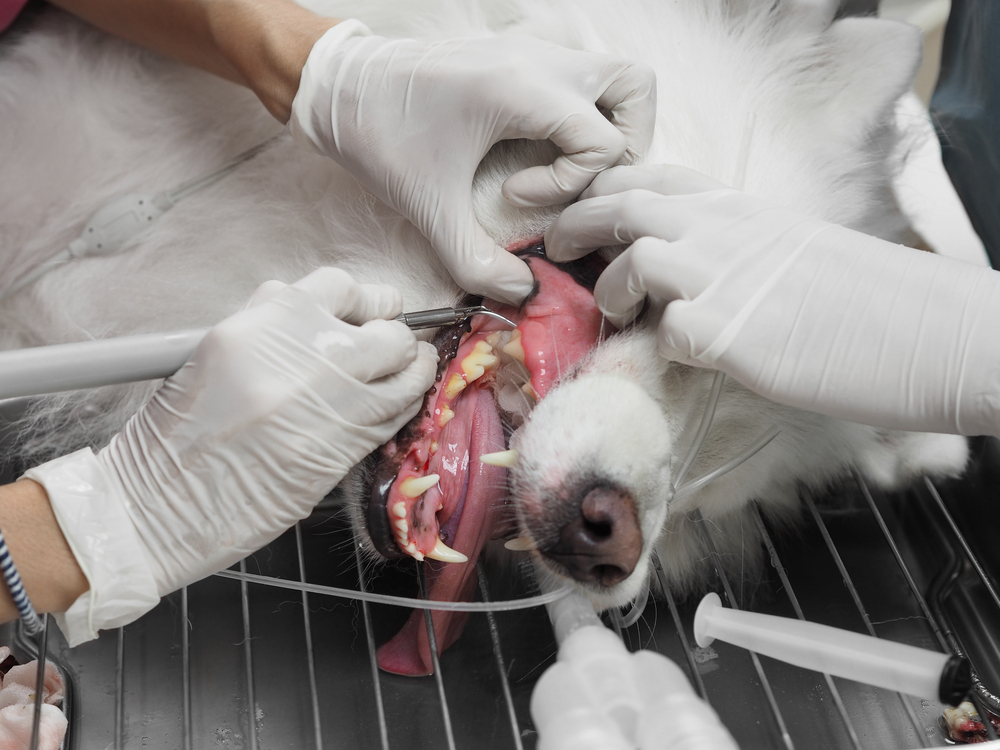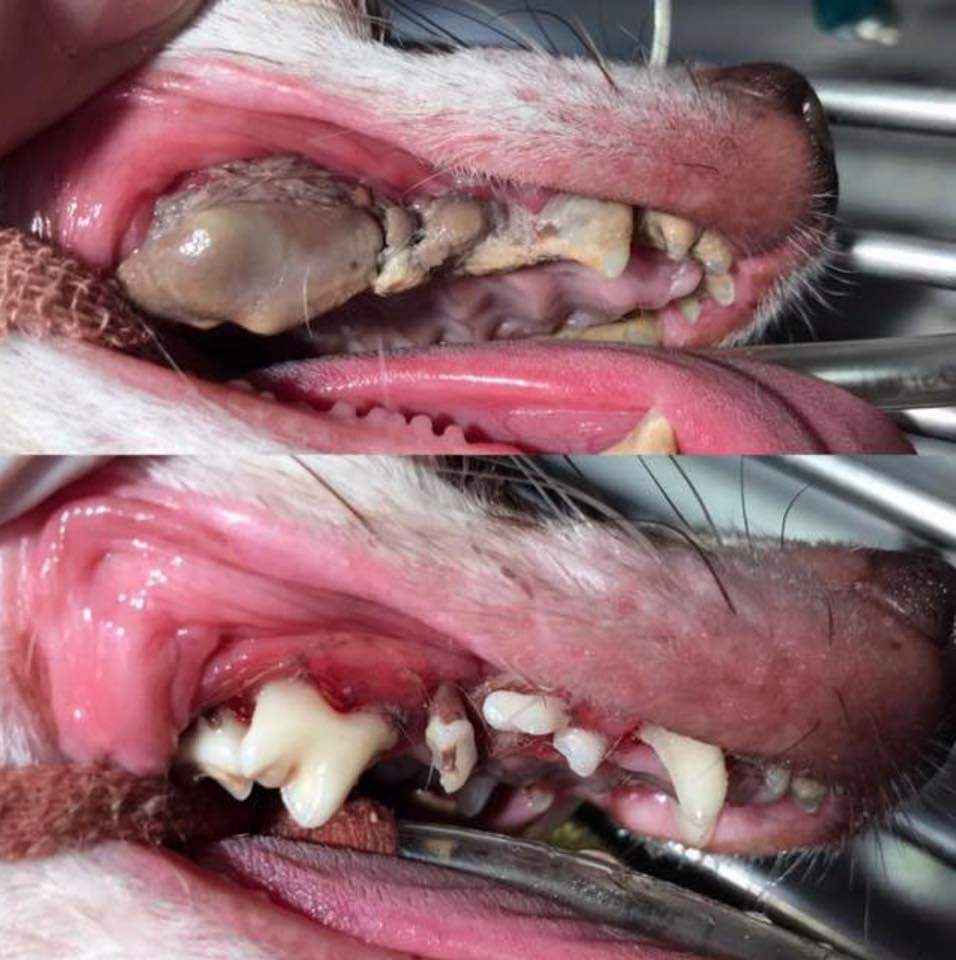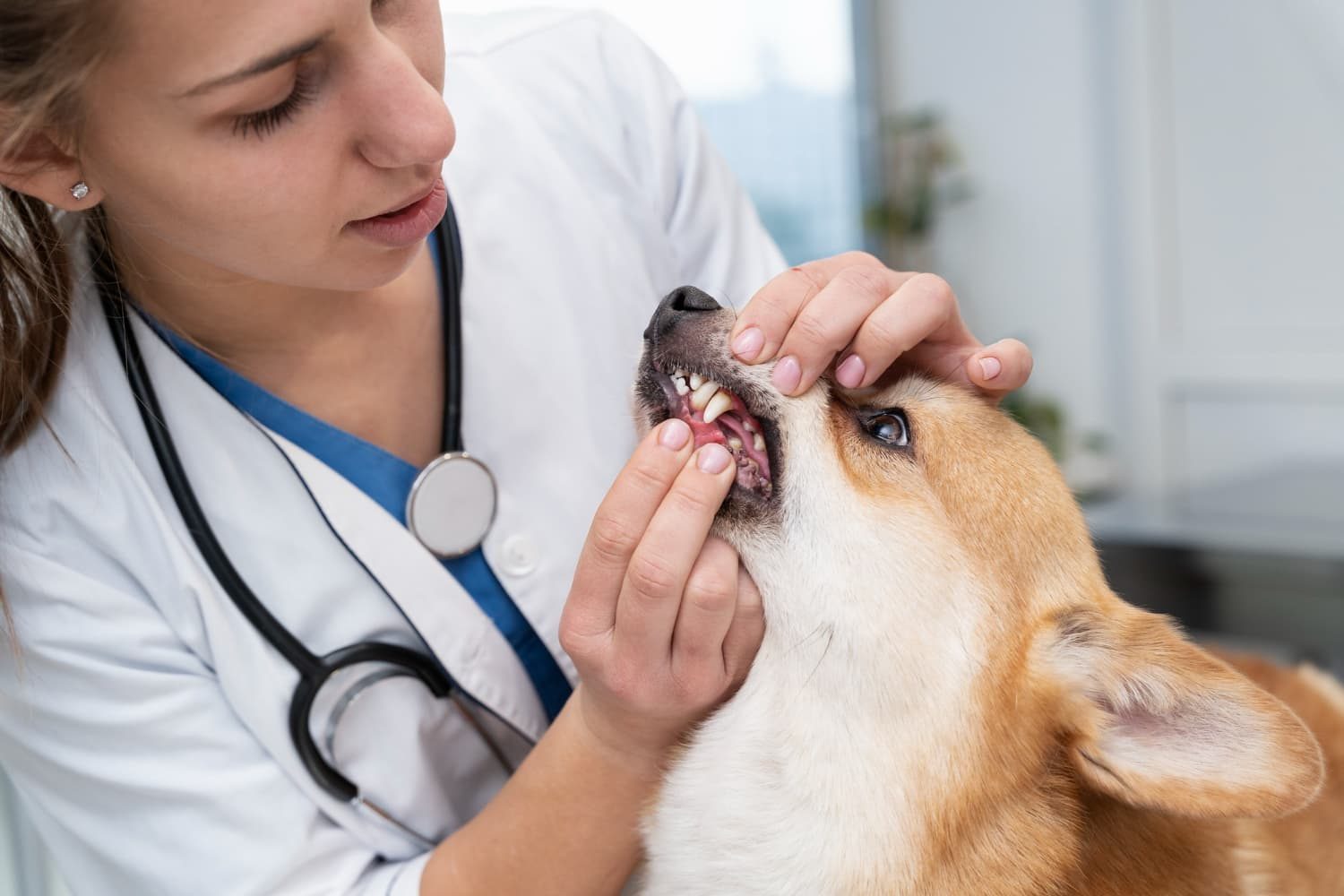Keeping your dog healthy goes beyond regular vet visits and a balanced diet. One crucial aspect that often gets overlooked is dental care.
Just like you, your furry friend can suffer from dental issues that lead to serious health problems. Have you ever noticed your dog’s bad breath or reluctance to chew? These could be signs of dental disease, which affects many dogs and can lead to pain, discomfort, and costly treatments if left untreated.
We’ll dive into the importance of dental cleaning for dogs and why it should be a priority in your pet care routine. You’ll discover how regular dental cleanings can keep your dog happy and healthy, saving you from expensive vet bills down the road. Plus, you’ll learn about the different options available for dental care, including the benefits of professional cleanings. By the end, you’ll have the knowledge you need to make informed choices for your dog’s oral health. Let’s ensure your canine companion enjoys a bright smile and a long, happy life!
Signs Of Dental Issues
Dental health is vital for your dog’s overall well-being. Many owners overlook their dog’s dental problems. Knowing the signs of dental issues can help you act quickly. Early detection can prevent serious health problems.
Bad Breath
Foul-smelling breath is one of the first signs of dental issues. Normal dog breath should not be offensive. Persistent bad breath often indicates gum disease or plaque buildup. Pay attention to how your dog’s breath smells.
Red Or Swollen Gums
Healthy gums should be pink and firm. Red or swollen gums are a clear sign of inflammation. This can lead to gingivitis or periodontal disease. Check your dog’s mouth regularly for any changes.
Difficulty Eating
If your dog struggles to eat, dental problems may be the cause. Watch for signs of chewing slowly or dropping food. Painful teeth or gums can make eating uncomfortable. Change in eating habits is a crucial warning sign.
Excessive Drooling
While some drooling is normal, excessive drooling can signal dental issues. Pay attention to when your dog drools more than usual. This may indicate pain or discomfort in the mouth. It’s essential to investigate further.
Loose Or Missing Teeth
Loose or missing teeth are serious signs of dental problems. Teeth should be strong and firmly in place. If you notice any loose teeth, consult your veterinarian. This could indicate advanced gum disease.
Behavior Changes
Changes in behavior can also point to dental issues. If your dog becomes irritable or withdrawn, it could be in pain. Increased aggression during play or handling may also be linked to dental discomfort. Monitor your pet closely for any unusual behavior.
Benefits Of Dental Cleaning
Dental cleaning for dogs offers many benefits. Regular cleanings help maintain your dog’s overall health. They prevent serious dental issues and improve your dog’s quality of life.
Healthy teeth and gums mean happier pets. Good oral hygiene reduces bad breath. It also helps avoid painful dental diseases.
Prevention Of Dental Disease
Dental cleanings help prevent plaque and tartar buildup. Plaque can lead to gingivitis, an early stage of gum disease. Untreated gingivitis can progress to more severe periodontal disease.
Periodontal disease causes inflammation and infection. It can lead to tooth loss and pain. Regular cleanings keep your dog’s mouth healthy.
Improved Overall Health
Oral health affects your dog’s overall well-being. Bacteria from gum infections can enter the bloodstream. This can lead to serious conditions like heart disease.
Healthy teeth help prevent infections in other organs. A clean mouth supports a longer, healthier life for your dog.
Better Breath
Regular dental cleanings lead to fresher breath. Bad breath often indicates dental problems. Cleaning removes food particles and bacteria that cause odors.
Your dog will feel more comfortable and confident. Fresh breath makes close moments with your pet more enjoyable.
Cost-effective Care
Investing in dental cleaning saves money in the long run. Preventative care avoids costly treatments for dental diseases. Regular cleanings reduce the risk of serious health issues.
Healthy teeth lead to fewer vet visits. This helps you manage your budget better.
Plaque And Tartar Risks
Understanding the risks of plaque and tartar buildup is crucial for your dog’s dental health. These issues not only affect your pet’s mouth but can also lead to serious health problems. Regular dental cleaning helps prevent these risks and keeps your furry friend happy and healthy.
Plaque: The Silent Invader
Plaque is a soft, sticky film of bacteria that forms on your dog’s teeth. It develops quickly, often within hours after eating. If you notice a yellowish film on your dog’s teeth, it’s time to take action.
Without proper dental care, plaque hardens into tartar, which is much harder to remove. This process can lead to gum irritation and inflammation. Have you ever noticed your dog’s bad breath? That could be a sign that plaque is taking over.
Tartar: The Hard Truth
Tartar is the hardened form of plaque and can lead to serious dental issues. Once tartar builds up, it creates a rough surface for more plaque to cling to, making the problem worse. The longer tartar remains, the more likely it is to cause periodontal disease.
Periodontal disease can lead to painful gums, tooth loss, and even infections that spread to vital organs. Think about it—what might your dog endure if you don’t address this issue? The discomfort alone is enough to reconsider your dog’s dental routine.
Health Risks Beyond The Mouth
The implications of poor dental hygiene go beyond just the mouth. Bacteria from infected gums can enter the bloodstream, potentially leading to heart disease. This is a serious risk that many dog owners overlook.
Moreover, these harmful bacteria can affect other organs like the liver, kidneys, and lungs. This connection highlights the importance of regular dental cleanings. How can you ensure your dog’s overall health if their dental health is compromised?
Taking proactive steps in your dog’s dental care, like regular cleanings and at-home brushing, can prevent these issues. Don’t wait until it’s too late to take action. Your dog’s health depends on it!

Home Cleaning Techniques
Maintaining your dog’s dental health is vital for their overall well-being. Regular dental cleaning prevents plaque buildup and gum disease. Simple techniques, like brushing and professional cleanings, keep their teeth and gums healthy, promoting a happier, healthier pet.
Dental cleaning for dogs is an essential part of pet care that often gets overlooked. Regular cleaning not only keeps your dog’s breath fresh but also prevents serious health issues down the line. You can maintain your dog’s oral hygiene right at home with some effective techniques.
Brush Your Dog’s Teeth Regularly
Brushing your dog’s teeth is the gold standard for home dental care. Use a toothbrush designed for dogs along with toothpaste made for pets. – Aim to brush your dog’s teeth at least two to three times a week. – Start slowly to get your dog used to the process. – Focus on the outer surfaces where plaque builds up most. You’ll be amazed at how quickly your dog adapts. My dog, Max, initially resisted, but now he looks forward to his brushing sessions!
Use Dental Chews And Toys
Dental chews and toys are a fun way to keep your dog’s teeth clean. These products are designed to reduce plaque and tartar as your dog chews on them. – Look for products approved by the Veterinary Oral Health Council (VOHC). – Monitor your dog while they chew to ensure they are safe. I noticed a significant reduction in plaque buildup on Max’s teeth after introducing these chews into his routine.
Water Additives And Oral Sprays
Water additives and oral sprays can be a convenient addition to your dog’s dental care routine. These products help reduce bacteria and freshen breath. – Add the water additive to your dog’s drinking water as directed. – Spray the oral solution directly into your dog’s mouth for added freshness. Think about how easy this is! You can take a moment to incorporate these into your daily routine without much hassle.
Regular Checkups With The Vet
Home cleaning techniques are important, but they should complement regular veterinary checkups. Your vet can identify issues you might miss at home. – Schedule annual dental exams for your dog. – Discuss any concerns you have about your dog’s oral health. During Max’s last checkup, the vet found a small issue that I would have never noticed. Early detection can save your dog from pain and expensive treatments later. Maintaining your dog’s dental health at home is achievable with these simple techniques. Have you tried any of these methods before? What works best for your furry friend?
Professional Cleaning Options
Taking care of your dog’s teeth is essential. Professional cleaning options help maintain their oral health. These services can prevent serious dental issues. They also improve your dog’s overall well-being. Let’s explore some of the professional cleaning options available.
Veterinary Dental Cleaning
Veterinary dental cleaning is the most common option. A licensed veterinarian performs this procedure. They use special tools to clean your dog’s teeth. This cleaning removes plaque and tartar effectively. Anesthesia is often required for this type of cleaning.
During this procedure, your dog will be fully monitored. The vet checks for any signs of dental disease. This option provides a thorough cleaning. It ensures your dog’s teeth and gums are healthy.
Non-anesthetic Dental Cleaning
Non-anesthetic dental cleaning is another choice. This service is less invasive than traditional cleaning. Trained technicians perform the cleaning while your dog is awake. They use hand tools to remove plaque and tartar.
This method can be suitable for dogs who are anxious. It is also ideal for those who cannot tolerate anesthesia. However, it may not be as thorough as veterinary cleaning. Regular follow-up care is important for maintaining results.
At-home Professional Services
Some businesses offer at-home professional cleaning services. They send a technician to your home. This option provides convenience for busy pet owners. Technicians use safe methods to clean your dog’s teeth.
At-home services often include detailed oral health assessments. They can also recommend at-home care practices. This helps maintain your dog’s dental health between cleanings.
Dental Cleanings At Grooming Salons
Many grooming salons now offer dental cleaning. This service can be added to your dog’s grooming appointment. Groomers may provide basic dental care, like brushing and scaling.
This option is great for dogs who enjoy being groomed. It may help reduce plaque buildup over time. However, it may not replace a full veterinary cleaning. Regular veterinary check-ups remain essential.

Credit: www.plumvet.com
Choosing The Right Tools
Selecting the right tools for dental cleaning is crucial for your dog’s health. Look for soft-bristled toothbrushes and pet-safe toothpaste. The right instruments make the process easier and more effective, ensuring a clean mouth and fresh breath. Regular cleaning helps prevent serious dental issues in dogs.
Choosing the right tools for your dog’s dental cleaning is essential for ensuring their oral health. With the right equipment, you can effectively manage plaque buildup, prevent gum disease, and keep your dog’s teeth sparkling clean. Let’s explore the key tools you need to tackle this important task.
Essential Toothbrushes
Using a toothbrush designed for dogs is crucial. These brushes have softer bristles and angled heads to reach those tricky spots. Consider a finger brush if your dog is anxious about traditional brushes. This tool allows you to gently clean your dog’s teeth while providing comfort.
Dog-safe Toothpaste
Never use human toothpaste on your dog. It contains ingredients that can harm them. Opt for dog-safe toothpaste, which comes in flavors like chicken or peanut butter. Your dog will enjoy the taste, making brushing a more pleasant experience.
Dental Chews And Toys
Incorporating dental chews and toys can be a fun way to promote oral health. These products help reduce plaque and tartar as your dog chews. Look for options approved by veterinary dentists to ensure they effectively contribute to cleaning your dog’s teeth.
Water Additives
Consider using water additives that target oral health. These solutions can help reduce bacteria and freshen breath. Just add them to your dog’s drinking water for an effortless dental boost.
Regular Vet Check-ups
No tool can replace professional care. Schedule regular vet check-ups for thorough cleanings and assessments. Your vet can recommend additional tools or techniques tailored to your dog’s specific needs. Choosing the right tools enhances your dog’s dental care routine. Have you considered how a simple toothbrush can make such a significant difference? Investing in quality tools not only keeps your dog healthy but also strengthens your bond during these care sessions.
Diet And Oral Health
What dogs eat plays a big role in their oral health. A balanced diet helps keep teeth and gums strong. Certain foods can even help reduce plaque and tartar buildup. Choosing the right diet can make a difference in your dog’s dental health.
Types Of Food
Dry kibble is better for dental health than wet food. The crunchiness of kibble helps scrub teeth. It reduces plaque as dogs chew. Look for quality dog food that lists meat as the first ingredient.
Some dog owners prefer raw diets. Raw bones can help clean teeth naturally. They provide essential nutrients too. Be careful with bones that splinter easily. Always supervise your dog while eating bones.
Dental Treats And Chews
Special dental treats can aid oral health. Many are designed to reduce tartar and freshen breath. Look for treats approved by veterinary dental organizations. Regular use of these treats can improve your dog’s dental hygiene.
Chewing on toys can also promote healthy teeth. Rubber toys that are soft yet durable can massage gums. They help keep teeth clean while providing entertainment.
Water And Hydration
Fresh water is vital for overall health. It helps wash away food particles and bacteria. Always provide clean water for your dog. Consider adding dental water additives for extra protection.
Diet impacts your dog’s oral health significantly. By choosing the right foods and treats, you support their dental hygiene. A healthy diet leads to a happier, healthier dog.
Frequency Of Cleaning
Understanding the frequency of dental cleaning for your dog is crucial for maintaining their overall health. Just like humans, dogs need regular dental care to prevent issues such as plaque buildup, gum disease, and even more severe health problems. Knowing how often to clean your dog’s teeth can save you from costly vet bills and discomfort for your furry friend.
How Often Should You Schedule Professional Cleanings?
Most veterinarians recommend scheduling a professional dental cleaning for your dog at least once a year. However, some dogs may require more frequent cleanings based on their breed, age, and existing dental health. For instance, small breeds often face more dental issues and may need cleanings every six months.
- Small breeds: Every 6 months
- Medium to large breeds: Once a year
- Senior dogs: Every 6 months to a year, depending on their dental health
Daily Dental Care At Home
Professional cleanings are essential, but daily care at home is just as important. Brushing your dog’s teeth daily can significantly reduce plaque buildup. Using dog-friendly toothpaste and a soft toothbrush, make it a routine to keep their teeth and gums healthy.
Have you ever noticed how much your dog enjoys a good dental chew? Chew toys can also help maintain dental hygiene by scraping off plaque as your dog gnaws away. Incorporating these into your routine can make a noticeable difference in your dog’s dental health.
Recognizing Signs Of Dental Problems
Keeping an eye on your dog’s dental health can help you determine if they need more frequent cleanings. Look for signs such as bad breath, swollen gums, or difficulty eating. If you notice any of these, it might be time to visit the vet.
Your dog’s dental health is not something to overlook. With a little effort and attention, you can ensure they have a happy and healthy smile. How often do you currently check your dog’s teeth? It’s time to make it a priority!
Preventing Dental Diseases
Dental cleaning for dogs is vital to prevent dental diseases. Regular cleanings help remove plaque and tartar, protecting your pet’s gums and teeth. This simple practice promotes overall health, avoiding pain and complications in other organs. Keeping your dog’s mouth healthy ensures a happier, longer life.
Preventing dental diseases in dogs is essential for maintaining their overall health and happiness. Just like humans, dogs can suffer from various dental issues that not only affect their mouths but can also lead to serious health problems. Regular dental cleaning is a vital part of your pet’s healthcare routine, helping to prevent painful conditions and ensuring your furry friend lives a long, healthy life.
Understanding Dental Diseases
Dental diseases often start with the buildup of plaque, a sticky film of bacteria that forms on teeth. If not removed, plaque hardens into tartar, leading to gum inflammation and infection. This condition, known as gingivitis, is common among dogs. Without intervention, gingivitis can escalate into periodontal disease. This serious condition causes gums to recede, creating pockets where bacteria thrive, ultimately damaging bone and tissue.
The Importance Of Regular Cleanings
Regular dental cleanings are crucial in combating these issues. Professional cleanings involve scaling and polishing, which remove plaque and tartar from above and below the gum line. This not only prevents periodontal disease but also promotes healthier gums and teeth. You might wonder, how often should you schedule a dental cleaning for your dog? The American Veterinary Medical Association recommends at least once a year. However, some dogs may require more frequent visits based on their dental health.
At-home Care Tips
While professional cleanings are vital, at-home care also plays a significant role. Brushing your dog’s teeth regularly can greatly reduce plaque buildup. Here are some simple at-home care tips:
- Use dog-specific toothpaste and a soft-bristled toothbrush.
- Introduce dental chews or toys that promote chewing.
- Incorporate dental water additives to help reduce bacteria.
Remember, starting these habits early can make a significant difference in your dog’s dental health.
Recognizing Signs Of Dental Issues
Pay attention to signs that your dog may have dental problems. Bad breath, difficulty eating, or swollen gums can indicate issues. If you notice any of these symptoms, consult your veterinarian immediately. Your dog’s dental health directly impacts their quality of life. Are you doing enough to keep their teeth clean? Regular check-ups and at-home care are essential in preventing dental diseases and ensuring your furry companion remains healthy and happy.
Cost Of Dental Care
Understanding the cost of dental care for your dog is crucial for making informed decisions about their health. Just like humans, dogs require regular dental cleanings to maintain their oral hygiene and overall health. The investment you make in your dog’s dental care can prevent serious health issues down the line, which could save you money and heartache in the long run.
Factors Influencing The Cost
The cost of dental cleaning for dogs can vary significantly based on several factors:
- Location:Veterinary services often charge different rates depending on the region. Urban areas may have higher prices compared to rural settings.
- Veterinary Clinic:Each clinic sets its own prices. Some may offer lower rates or special packages, while others might charge a premium for advanced services.
- Size of Dog:Larger dogs often incur higher costs for cleaning due to the additional time and resources required.
Average Costs
To give you a clearer picture, here’s a quick look at average dental cleaning costs in various states:
| State | Average Cost |
|---|---|
| California | $343 |
| Colorado | $349 |
| Connecticut | $350 |
| Delaware | $406 |
These figures can help you budget accordingly. Have you considered how often your dog needs cleaning? Regular cleanings can help avoid more expensive procedures in the future.
Additional Costs To Consider
Don’t forget to account for other potential expenses:
- Anesthesia:Some clinics require anesthesia for thorough cleaning, which adds to the cost.
- Extractions:If your dog has dental issues, extractions may be necessary, leading to higher bills.
- Follow-up Care:Post-cleaning care or additional treatments can also impact your overall expenses.
Finding a balance between cost and care is essential. You want to ensure your dog receives the best care possible without breaking the bank. Have you discussed dental health with your veterinarian?
Is Dental Care Worth The Cost?
Investing in your dog’s dental health is often a worthwhile expense. Regular cleanings prevent gum disease, tooth loss, and even serious conditions affecting the heart and other organs. The savings on future health issues can far outweigh the initial costs.
Consider your dog’s happiness and health when weighing these expenses. A healthy mouth contributes to a happy life. Are you ready to make dental care a priority for your furry friend?

Credit: www.americananimal.net
Frequently Asked Questions
How Much Does A Dog’s Dental Cleaning Cost?
The cost of a dog’s dental cleaning typically ranges from $300 to $500. Prices vary by location and veterinary clinic. Factors like the dog’s size and dental condition can influence the final cost. Regular cleanings help maintain your dog’s oral health and prevent costly issues later.
Is Dental Cleaning For Dogs Worth It?
Yes, dental cleaning for dogs is worth it. It prevents serious dental issues, improves overall health, and reduces pain. Regular cleanings can save money on more expensive treatments later. A healthy mouth leads to a happier, more active dog. Prioritize your pet’s dental care for their well-being.
How Much Is A Teeth Clean For A Dog?
The cost of a dog teeth cleaning typically ranges from $200 to $500. Factors influencing the price include location, clinic reputation, and any necessary extractions. Regular dental care is essential for your dog’s overall health. Always consult your veterinarian for specific pricing and recommendations.
How Much Does Dental Treatment Cost For Dogs?
The cost of dental treatment for dogs varies widely. On average, expect to pay between $300 to $400. Factors influencing the price include location, the dog’s size, and specific procedures needed. Regular dental care can prevent costly future treatments. Always consult your veterinarian for accurate estimates.
What Is Dog Dental Cleaning?
Dog dental cleaning removes plaque and tartar from your dog’s teeth.
Why Is Dental Cleaning Important For Dogs?
It prevents dental diseases and supports overall health in dogs.
How Often Should Dogs Have Dental Cleaning?
Most dogs need dental cleaning once a year or as needed.
What Happens During A Dog Dental Cleaning?
A vet cleans teeth, removes tartar, and checks for dental issues.
Can I Clean My Dog’s Teeth At Home?
Yes, brushing and dental treats can help maintain your dog’s dental health.
Is Anesthesia Required For Dog Dental Cleaning?
Many vets perform cleanings under anesthesia for safety and effectiveness.
Conclusion
Keeping your dog’s teeth clean is essential for their health. Regular dental cleanings prevent serious issues like gum disease and pain. A healthy mouth means a happy dog. Invest time in at-home dental care, too. Brush your dog’s teeth and provide dental chews.
Always consult your vet for advice tailored to your pet. Prioritize your dog’s dental health to ensure a long, joyful life. Simple steps lead to great results. Make dental cleaning a routine part of your dog’s care today. Your furry friend will thank you with a wagging tail.
Credits: Image by Freepik (https://www.freepik.com)

